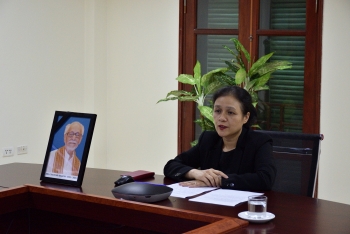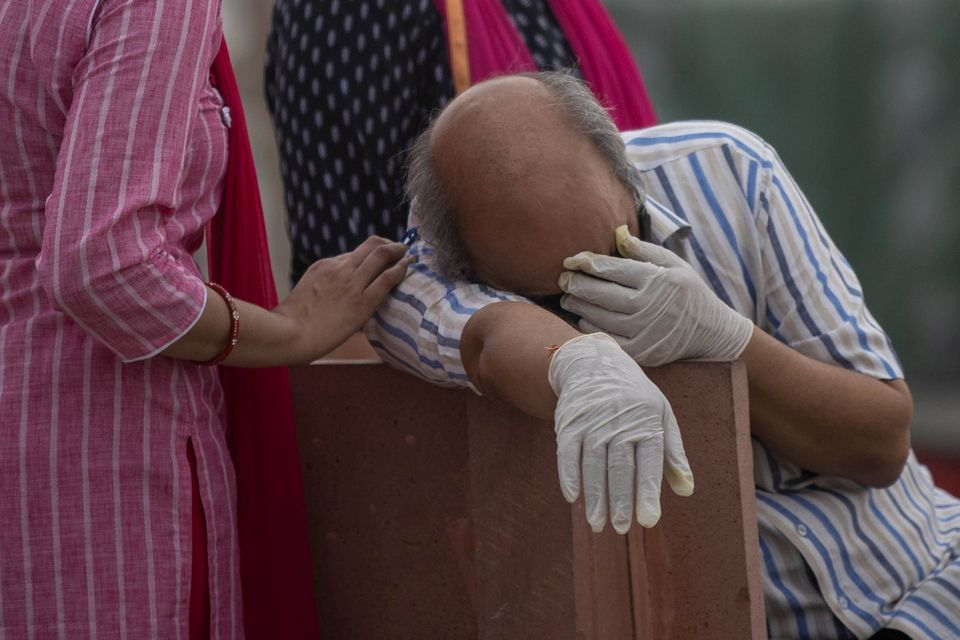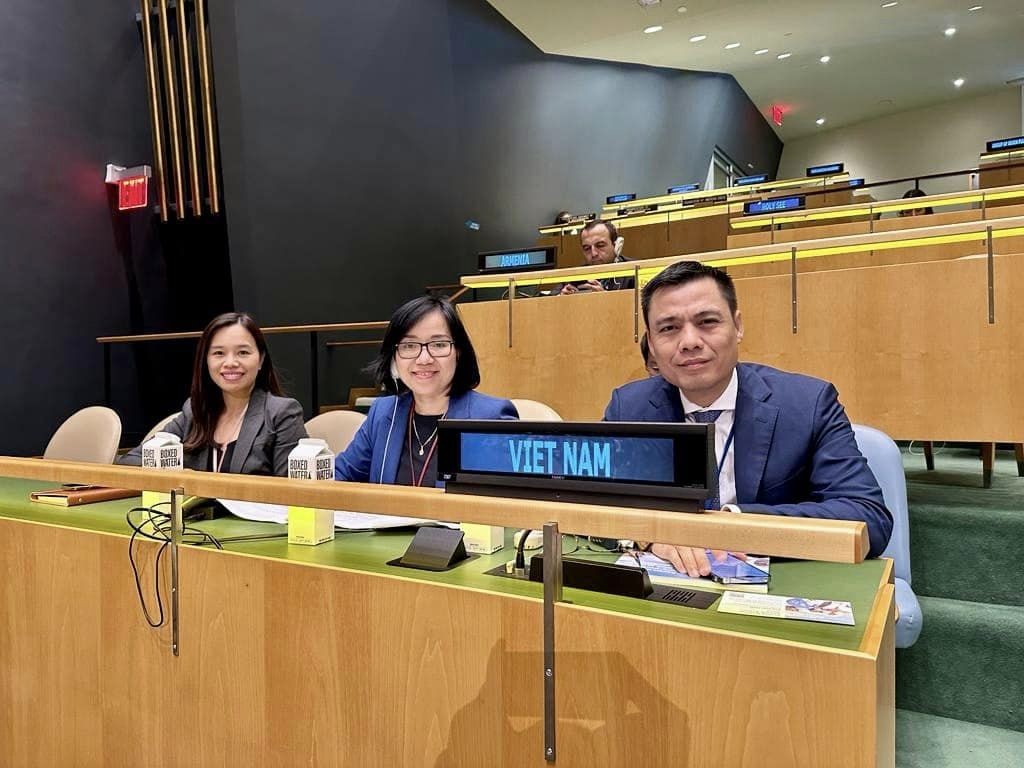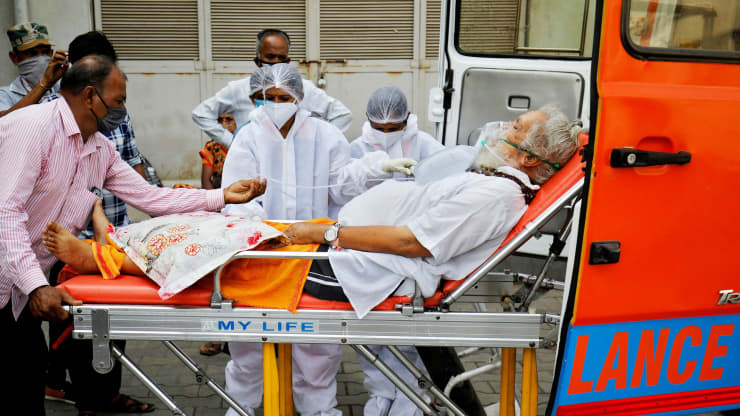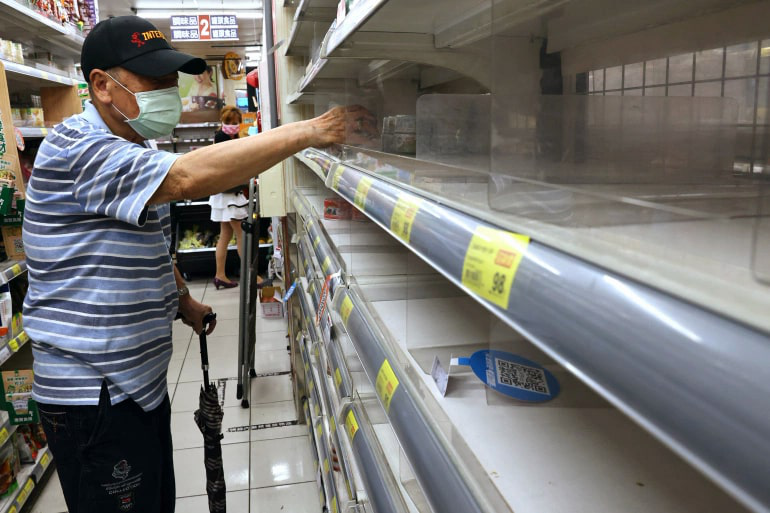Covid-19 in India and the world latest news: India reports its highest daily death toll — 4,187 people
India Sees Deadliest Day Of Pandemic With COVID-19 Deaths Topping 4,000
India reported its highest daily death toll — 4,187 people — on Saturday, weeks into the world's worst wave of coronavirus cases that's leaving people without lifesaving hospital beds, oxygen and drugs.
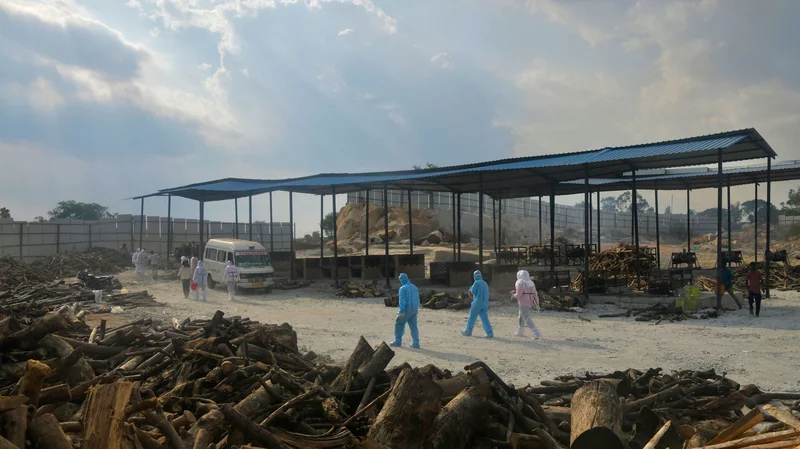 |
| Family members and relatives wearing protective gear arrive to cremate the bodies of victims who died of the COVID-19 at an open air crematorium on the outskirts of Bangalore on Saturday. Manjunath Kiran/AFP via Getty Images |
In all, nearly 240,000 people in India are confirmed to have died from COVID-19, with reported infections topping 21 million, according to NPR.
It's a bitter turn for India, which had managed to see cases decline over the winter. But by late March, a second wave swelled and now is ripping relentlessly through the country, with around 400,000 new cases and more than 3,500 deaths reported every day.
But as bad as the government's official numbers are, they are almost certainly a vast undercount.
"There's a shortage of tests," Santosh Pandey, who resides near the holy city of Varanasi in northern India, told NPR in April. "Nobody's getting tested, so the government's numbers for our district are totally wrong."
Crematoriums across India have said only a fraction of the bodies they receive each day are getting counted by the government.
Prime Minister Narendra Modi is coming under increasing criticism for his handling of the crisis. He has not delivered a television address since April 20.
More Contagious Variant Abets India’s COVID-19 Surge, WHO Says
India reported a record number of COVID-19 deaths in a single day Saturday, and a more contagious variant is partly to blame, the World Health Organization's chief scientist said, according to VOA.
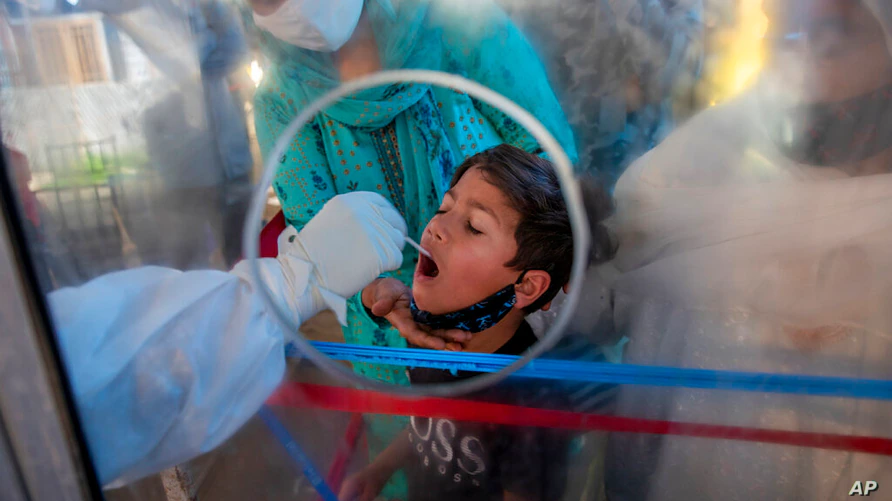 |
| A health worker takes a swab from a Kashmiri boy to test for COVID-19 in Srinagar, Indian-controlled Kashmir, May 8, 2021. Infections have swelled in India since February; more contagious variants and permissive decisions on gatherings are blamed. (Photo: AP) |
In an interview Saturday with AFP, Soumya Swaminathan warned that "the epidemiological features that we see in India today do indicate that it's an extremely rapidly spreading variant."
Swaminathan said the B.1.617 variant of the coronavirus that causes COVID-19 was clearly a contributing factor to the catastrophe in India, her homeland.
"There have been many accelerators that are fed into this," the 62-year-old pediatrician and clinical scientist said, stressing that "a more rapidly spreading virus is one of them." She added, however, that large gatherings and a lapse in mask-wearing also played a role.
The B.1.617 variant was first discovered in India last October. The U.S. and Britain consider it a “variant of concern,” which indicates it is more dangerous than the original virus.
The number of cases and deaths are horrifying on their own, but Swaminathan said the additional danger was the increasing likelihood of variants that could outwit vaccines.
"Variants which accumulate a lot of mutations may ultimately become resistant to the current vaccines that we have," she warned.
India’s health ministry Saturday reported more than 401,000 new COVID-19 infections and nearly 4,200 deaths in the previous 24-hour period, although public health experts believed the actual numbers were likely much higher.
More of India's states imposed stringent lockdown measures in the absence of a national lockdown plan.
Bangladesh detects first cases of Indian coronavirus variant
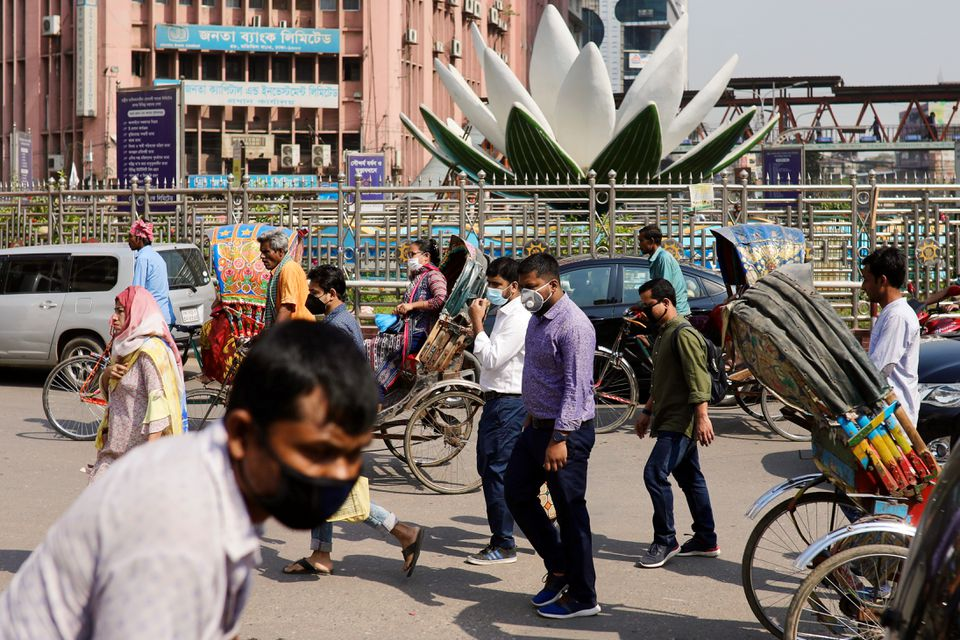 |
| People wear masks as a protective measure after the first reported case of coronavirus in Dhaka, Bangladesh March 10, 2020. REUTERS/Mohammad Ponir Hossain |
Bangladesh has detected its first case of a highly infectious coronavirus variant first identified in India, the country’s health directorate said on Saturday, prompting the government to keep its border sealed for another two weeks.
Six cases of the Indian variant had been detected in Bangladesh, Nasima Sultana, additional director general of the health directorate, told reporters.
“Two cases are confirmed to be of the Indian variant, and the others are quite close to it,” Sultana said, adding that they all recently returned from neighbouring India and were in isolation, according to Reuters.
“The Indian variant is highly contagious and people must be cautious and strictly follow health guidelines such as wearing masks, maintaining physical distancing and washing hands,” she said.
Late in April, Bangladesh sealed its border with India for 14 days, though trade continues. The government on Saturday decided to extend the border closure for another 14 days after the variant was detected, a foreign ministry official said.
Air travel has been suspended since April 14, when Bangladesh imposed a strict lockdown for a week. Since then, a loose lockdown has been in place to May 16.
Bangladesh’s second wave peaked around a month ago. Since then, daily infections have been declining, with 1,285 new cases reported on Saturday as well as 45 fatalities.
Total cases stand at 772,127, with 11,878 deaths.
South Africa picks up first cases of coronavirus variant from India
South Africa’s health ministry said on Saturday it had detected the first four cases of a new coronavirus variant that emerged in India and was responsible for a surge of infections and deaths in the Asian country.
Testing had also picked up 11 cases of the variant B.1.1.7 first detected in the UK, the health ministry said in a statement, Reuters reported.
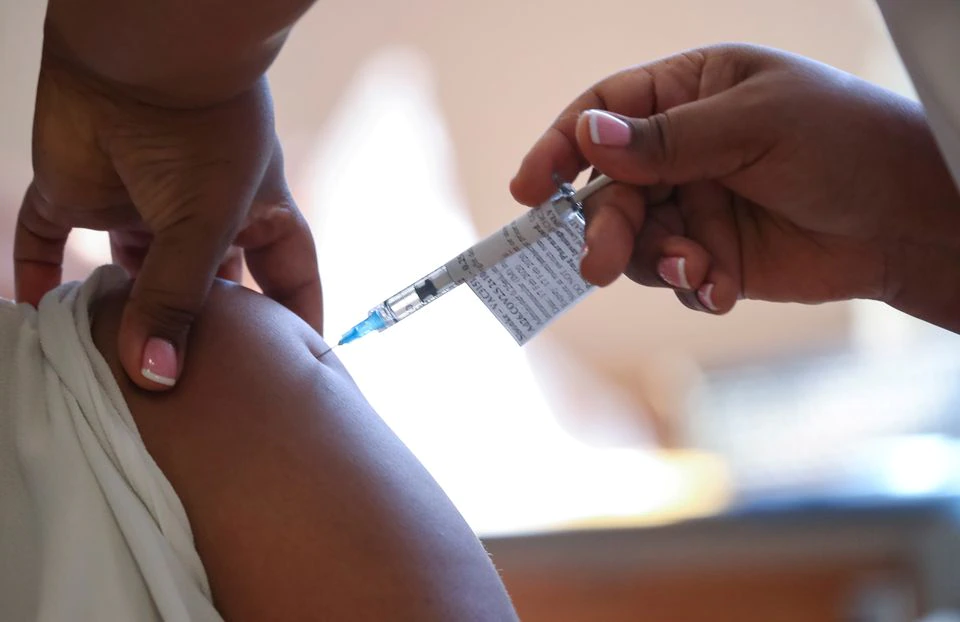 |
| A healthcare worker receives the Johnson and Johnson coronavirus disease (COVID-19) vaccination at Khayelitsha Hospital near Cape Town, South Africa, February 17, 2021. REUTERS/Mike Hutchings |
“The Network for Genomic Surveillance in South Africa confirmed today that two variants of concern, other than the B.1.351 already dominating in South Africa, have been detected,” Health Minister Zweli Mkhize said.
The four positive cases were detected in Gauteng and KwaZulu-Natal provinces, and all had a history of travel to India, which on Saturday recorded its highest ever single-day COVID-19 death toll of 4,187 fatalities.
Of the 11 people infected with the UK variant, eight were found in the Western Cape, Mkhize said, adding that the B.1.1.7 strain was detected in community samples and that this suggested community transmission had already set in.
Africa’s worst-hit country in terms of infections and fatalities, South Africa’s second wave was driven by its own variant that quickly dominated infections countrywide.
South Africa has ordered tens of millions of vaccine doses from Johnson & Johnson and Pfizer as it looks to ramp up its slow mass vaccination campaign, with only 382,480 frontline healthcare workers inoculated out of a population of 60 million.
Pakistan imposes Eid lockdown as COVID cases soar
Pakistan on Saturday began a nine-day shutdown affecting travel and tourist hotspots in a bid to prevent a surge in COVID-19 cases during the Muslim holiday of Eid al-Fitr.
![A street vendor waits for customers at a market closed as the government announced new restrictions for the COVID-19 measures, in Peshawar, Pakistan [Muhammad Sajjad/AP] A street vendor waits for customers at a market closed as the government announced new restrictions for the COVID-19 measures, in Peshawar, Pakistan [Muhammad Sajjad/AP]](https://vietnamtimes.thoidai.com.vn/stores/news_dataimages/minhchauvnt/052021/09/10/4706_AP_21128319204977.png?rt=20210509104707) |
| A street vendor waits for customers at a market closed as the government announced new restrictions for the COVID-19 measures, in Peshawar, Pakistan [Muhammad Sajjad/AP] |
Already battling a third wave of infections and increasingly nervous about the crisis across the border in India, the government has imposed the most severe restrictions since a one-month lockdown in April last year, according to Al Jazeera.
“From today all businesses across the country will be closed. People will not be allowed to go into the markets to do their shopping for Eid,” Al Jazeera’s Kamal Hyder reported from the capital, Islamabad.
Hyder said the Pakistani government feared that it will not be able to cope due to a possible lack of ventilators and oxygen if the “situation sees the likes of which India is confronting”.
Asad Umar, the planning minister who is responsible for leading Pakistan’s pandemic response, said Pakistan was facing a “dangerous situation”.
“These measures have been necessitated by the extremely dangerous situation which has been created in the region with the spread of virulent mutations of the virus,” Umar said on Twitter, adding the country needed to “unite”.
Impoverished Pakistan has recorded more than 850,000 infections and 18,600 deaths, but with limited testing and a deprived healthcare sector, many fear the true extent of the disease is much worse.
Pakistan has seen a daily death toll of more than 100 in recent weeks.
Health officials have warned that hospitals are operating at close to capacity and they have rushed to increase the number of intensive care beds.
International flights have been slashed and border crossings with Iran and Afghanistan closed, except for trade.
Flights and land crossings with neighbouring India – reeling from a devastating outbreak with hundreds of thousands of new cases a day – were closed before the pandemic because of political tensions.
States turning down Covid-19 vaccine doses as US demand declines
Declining demand for Covid-19 vaccines in the US is causing states across the country to refuse their full allocations of doses from the federal government, despite concerted efforts to raise national take-up rates.
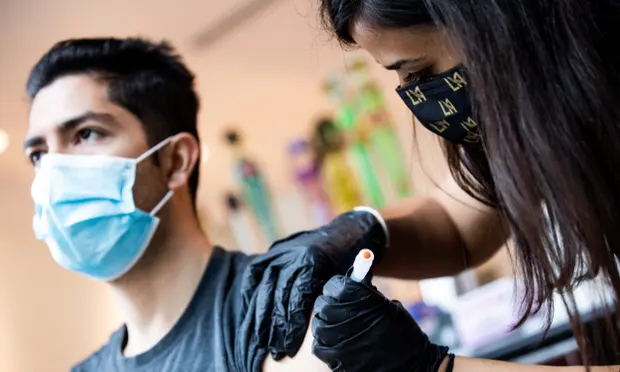 |
| A patient is vaccinated against Covid-19 at an event organized by the Los Angeles Football Club in California. Photograph: Étienne Laurent/EPA |
Reduced demand, which is contributing to a growing stockpile of doses, comes as nearly 46% of the US population has received at least one dose of a two-shot vaccine and about 34% are fully vaccinated, according to the CDC.
Last week, Joe Biden announced a plan to get at least one dose of vaccine administered to 70% of the nation’s adult population by 4 July – a date also floated for a full-economic and social interaction re-opening of America.
But on Saturday, hours before a pre-recorded message from Biden to a Global Citizen Vax Live event, it was reported that the nation’s vaccination rate dropped to 2m shots a day – a 20% decrease from the week before.
Vaccination rates are still short of the 70% to 85% of the total population that needs to be immune to control the spread of Covid-19.
Last week, Dr Anthony Fauci, the chief White House medical adviser, said he had abandoned “this mystical level of herd immunity”, a notion of collective disease resistance that could come when about 70% of the population has been inoculated.
Reports that many states are requesting that the Biden administration send them only a fraction of their allocations is a clear indication of persistent vaccine hesitancy in the US.
According to the Associated Press, Wisconsin health officials have asked for just 8% of the 162,680 doses that had been set aside for the state next week. Julie Willems Van Dijk, a state health department official, has said demand is softening and vaccinators are reducing existing inventories before ordering more doses.
Iowa health officials have requested 29% of the state’s allotment. Kansas officials asked for 9%, as the state has about 647,000 doses on hand; and Illinois officials says the state has five weeks’ worth of doses on hand and plans to cut its request, also to 9%. Similar patterns were reported by Connecticut – 26% – and South Carolina, 21%. North Carolina and Washington have reduced their requests by 40%.
But some states are maintaining full orders, including Maryland and Colorado. New York City is taking its full quota despite seeing the number of daily shots administered drop by about 40% since a mid-April peak.
“We’ve got the demand to keep using our supply effectively,” the city’s mayor, Bill de Blasio, said.
The drop in orders comes as the Biden administration announced this week that if states don’t order all the vaccines they’ve been allotted, surpluses will be sent to other states with higher demand.
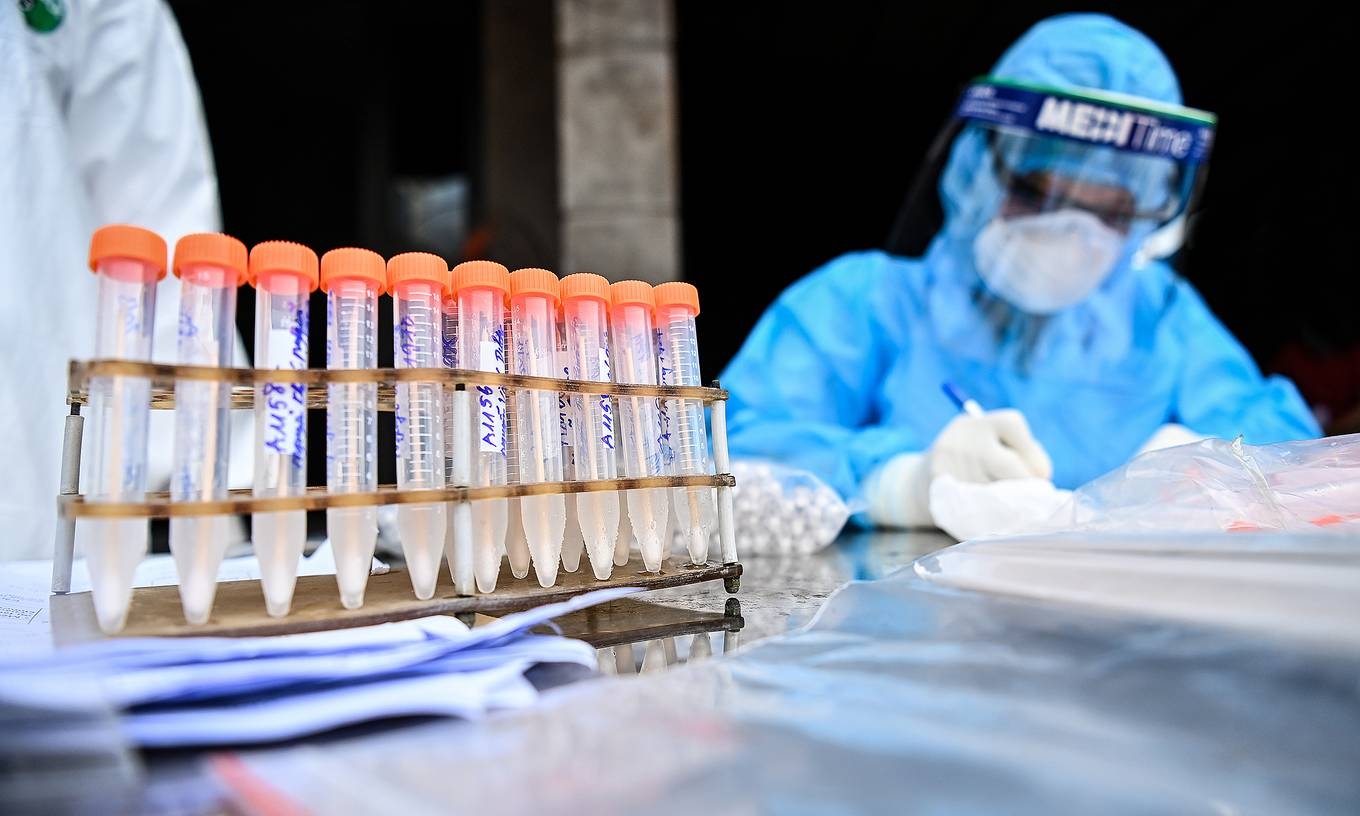 | UK, Indian variants found in Vietnam’s latest Covid-19 hot spot Coronavirus variants from the UK and India are behind cases at the National Hospital for Tropical Diseases in Hanoi |
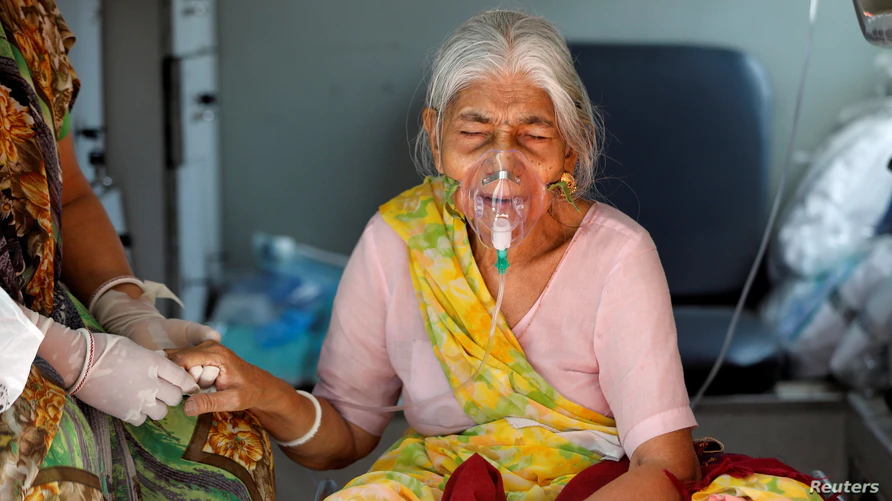 | Covid-19 in India and the world latest news: Reports new single-day record of COVID-19 infections On Thursday, India set new record of Covid-19 infection cases as the country struggle with shortage of medical supplies and hospitals are crowded with patients, ... |
Recommended
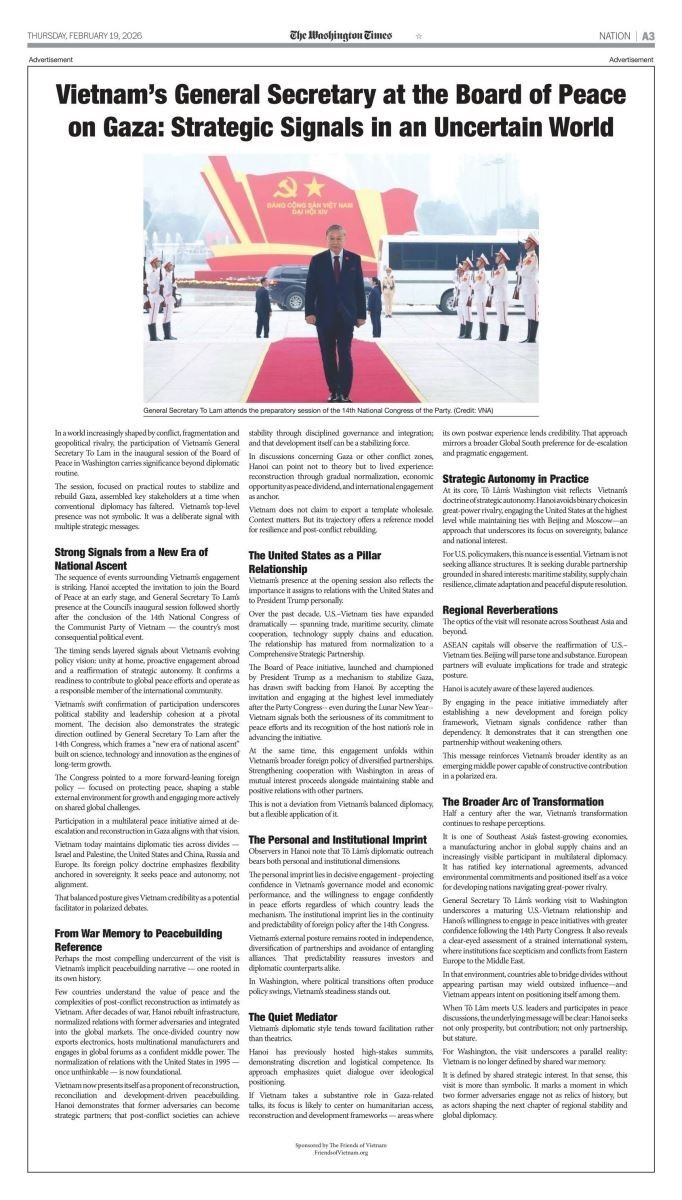 World
World
US Media Commend Vietnam’s Role in Global Peace Efforts
 World
World
Vietnam Officially Becomes Association Country of International Energy Agency (IEA)
 World
World
Key pacts signed as PM Modi hosts France's Macron for plane cooperation
 World
World
India, Canada commit to strengthening bilateral ties, discuss trade
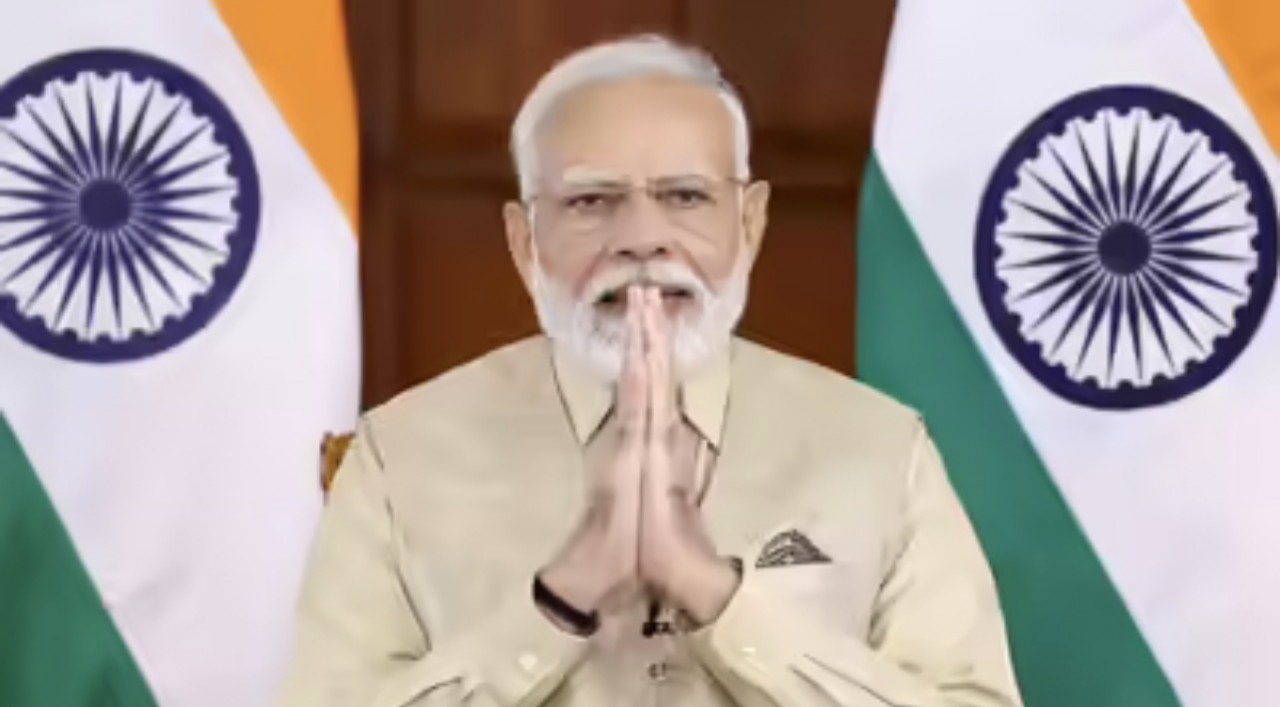 World
World
AI Summit India 2026 Live Updates: ‘Bringing the world together,’ PM Modi welcomes leaders as India hosts AI summit
 World
World
Safran ready to open India engine production in Rafale deal
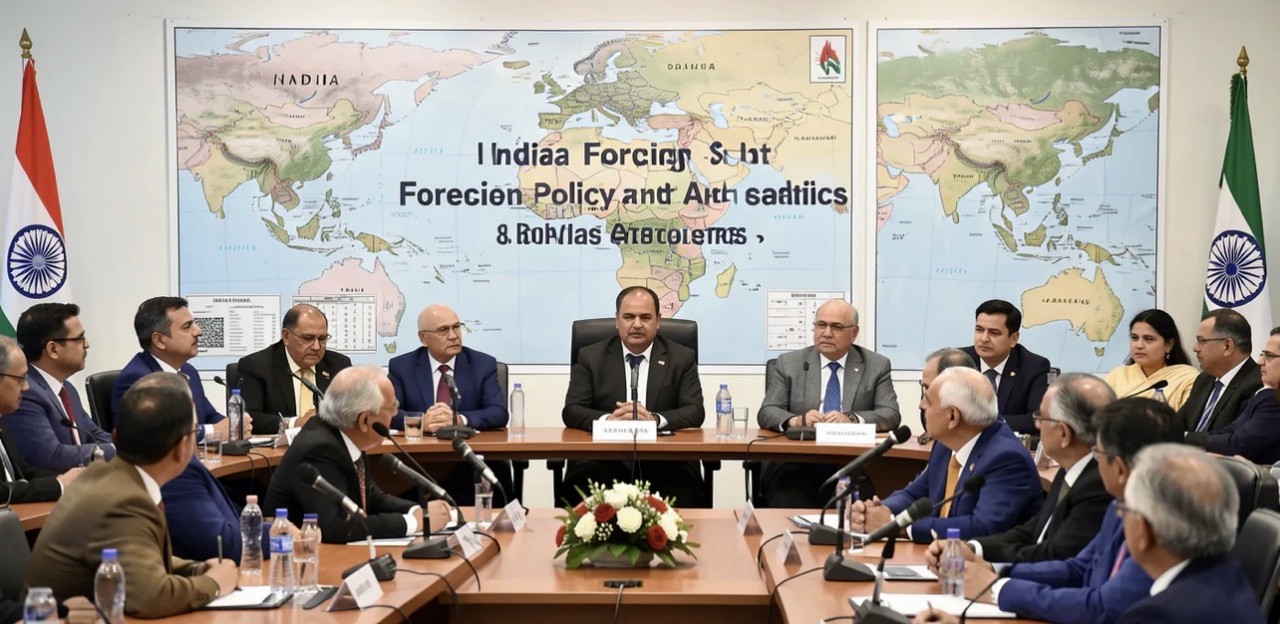 World
World
Nepal interim PM Sushila Karki thanks India for March support
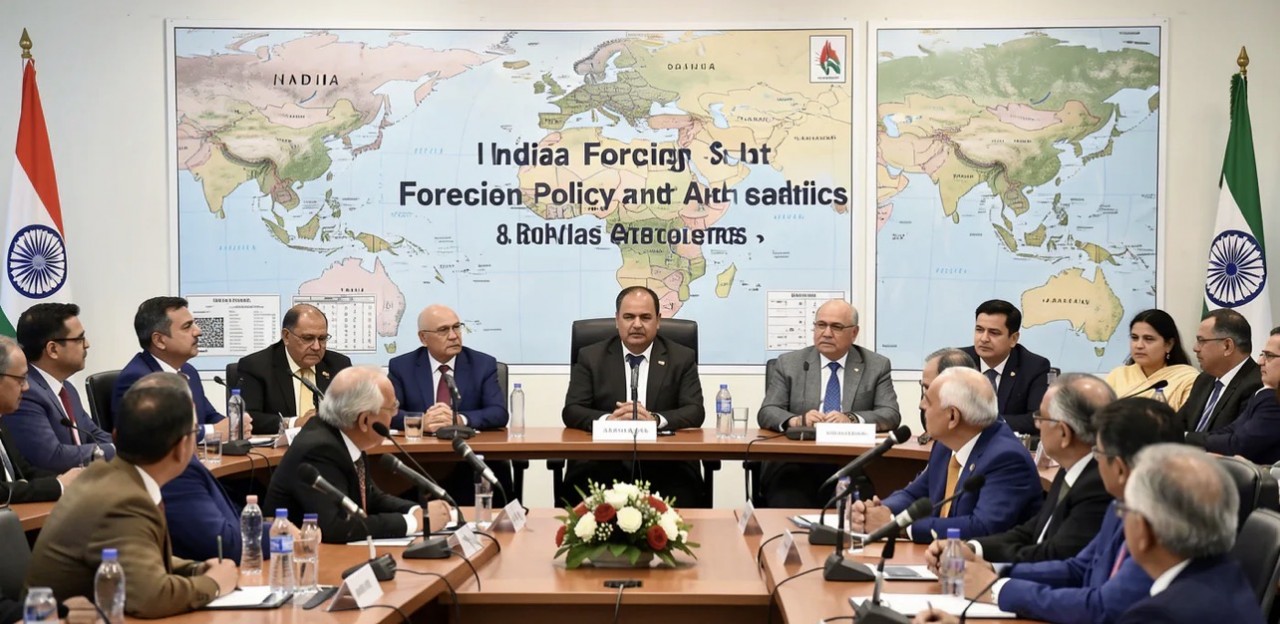 World
World

